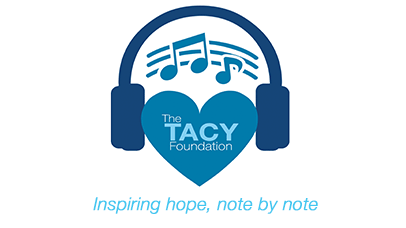Interview conducted by Linfred Kingston, Tacy Foundation volunteer
Blog post compiled by Anika Seth, Tacy Foundation Communications Intern
A large part of the Tacy Foundation’s work is forging relationships with seniors. We travel to assisted living homes to share the gift of music with residents because we recognize that music heals and inspires. As you may have gleaned from the previous blog post, an activity that the Tacy Foundation organized last summer involved students spending time at assisted living homes to get to know some of the residents and learn their story. This takes the musical relationship one step further: It creates direct bonds between people so that we can learn from each other. Linfred Kingston, one of the Foundation’s volunteers, sent in this interview with resident David Notley. It functions as a summary of Mr. Notley’s life and is a testament to the connection that he and Linfred were able to build, using music as the conduit. If you have a story you would like to share, please send it in! We would love to feature it.
–Anika
Hi, my name is Linfred Kingston.
I was granted the opportunity from the Tacy Foundation to interview David Notley, a great senior who has first-hand experience with grand historical events of the past as well as having outstanding insights and interests. David Notley was born in 1932 in Gary, Indiana and is the youngest of 4. Growing up as a child, Mr. Notley’s family did not have much money. There was sufficient food on the table to feed the whole family. There was plenty of love to go around in Mr. Notley’s house, and he had many friends. Usually, Mr. Notley’s family would dedicate a portion of every Sunday to playing cards together and just spending time as a family.
During his childhood, World War II was prevalent, and Mr. Notley’s two older brothers were in the military at the time. Mr. Notley's mother was always anxious due to this. Mr. Notley’s brothers wrote letters home two times a week. His father, while he wasn’t a big guy, taught Mr. Notley how to be a man. Everything they ate was usually rations, like canned jelly and vegetables. They also maintained a victory garden as a family.
Mr. Notley had a degree in fire protection and worked as an industrial safety engineer. He worked in the nuclear energy commission in 1962 and was in the weapons program. Later he went to work at another company where he spent 15 years in safety upgrade working at a nuclear power plant in Russia. One of the most significant life events of Mr. Notley was getting married and having his three sons. He describes his three sons as all different and very caring as well. He also states, “It is an awesome responsibility to know that three lives are dependent on him.”
Mr. Notley has lived through many monumental events in history such as World War II, the moon landing, the rise and fall of the Soviet Union, and the cold war. Mr. Notley recalls buying a TV to watch Neil Armstrong land on the moon as well as pointing out commercials were introduced on TV in the 1940s. It was a scary time to live during the Cold War as tension continued to grow between the two superpowers and nuclear warfare became more of a possibility. One day, as a child, when he was watching TV, the program was suddenly interrupted by an announcement declaring that Pearl Harbor had been bombed. Mr. Notley distinctly recalled his father saying, “We are in for it now.”
However, Mr. Notley enjoyed all the great times with his friends and family and it’s always been his favorite to see his childhood friends and folks. He enjoyed listening to classical music and various symphonies as a kid. Mr. Notley also enjoys folk music but wishes he could have paid attention to it more when he was younger.
Another interest of Mr. Notley is reading. He loves to read aloud to people and enjoys genres like mystery and biographies. Specifically, he loves the Sherlock Holmes series as well as Fredrick Douglass’s biography.
Over the years, Mr. Notley has picked up plenty of meaningful insights about the world. His best piece of advice was that most people are good and to trust people in charge. Also, Mr. Notley believes that we should all believe in ourselves, but we also must learn that we won't have all of the answers. He states, “When the facts show you’re wrong, learn to own up to that.”
Mr. Notley has had many experiences and interests throughout his life and continues expressing these interests. I'm Linfred, and this is my interview with David Notley. Thank you.
